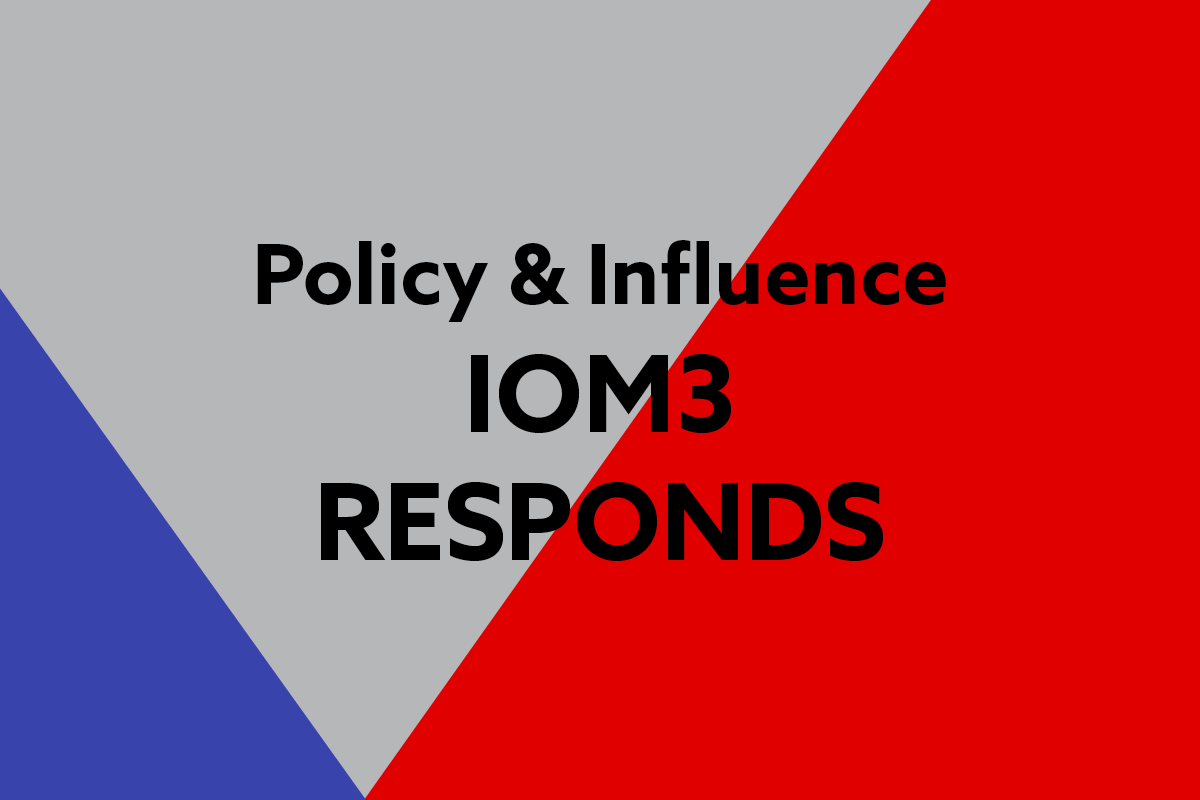IOM3 responds to King's Speech
King Charles confirmed a commitment to the clean energy transition and a raft of new bills.

In the first State Opening of Parliament under this government, the King’s Speech unveiled 40 bills including announcements on energy, infrastructure and skills.
Responding to the King’s Speech, IOM3 CEO Colin Church FIMMM CEnv, said, ‘The focus on sustainable growth through investment in industry, skills and new technology in today’s speech is encouraging and it is good to see clear recognition of the urgency of the global climate emergency. The drive for policy stability, commitment to the energy transition and measures to support the skills needed to deliver it are welcome and reflect a number of key asks IOM3 has been making of UK government.'
Matters relevant to sectors where IOM3 members work include the following:
Energy
- Great British Energy Bill to set up Great British Energy, a publicly owned clean power company headquartered in Scotland, designed to:
- Develop, own and operate assets investing in partnership with the private sector.
- Facilitate, encourage and participate in:
- The production, distribution and supply of clean energy.
- The reduction of greenhouse gas emissions.
- measures for furthering the transition to clean energy and improving energy efficiency.
- Crown Estate Bill designed to unlock investment in public infrastructure including:
- Acceleration and quadrupling offshore wind capacity by 2030.
- Digital technologies and port infrastucture.
- Sustainable Aviation Fuel (Revenue Support Mechanism) Bill to support sustainable aviation fuel production.
Industry & infrastructure
- Planning and Infrastructure Bill to accelerate the delivery of high-quality infrastructure and housing by:
- Streamlining the delivery process for critical infrastructure.
- Modernising planning committees.
- Increasing local planning authorities’ capacity.
- Using development to fund nature recovery.
- English Devolution Bill establishing a new framework for English Devolution giving local leaders greater powers over strategic planning, local transport networks and skills.
- Railways Bill and Passenger Railway Services (Public Ownership) Bill transferring operations to the public sector.
- Product Safety and Metrology Bill new powers for product regulation, addressing modern day safety issues and designed to ensure a level playing field between the high street and online marketplaces including:
- Responding to new product risks and opportunities such as fire risk associated with lithium-ion batteries.
- Identifying new and emerging business models.
- Enabling improvements to compliance and enforcement including greater sharing of data between regulators and market surveillance authorities.
- Updating the legal metrology framework which governs the accuracy of weights and measures of goods purchased.
- Establishment of an Industrial Strategy Council.
Skills & education
- Children’s Wellbeing Bill to raise standards in education and remove barriers to opportunity including by:
- Recognising the status of the teaching profession and the difference that teaching makes to a child’s education.
- Skills England Bill to establish skills England and simplify and improve the skills system including:
- Bringing together businesses, providers, unions, Mayoral Combined Authorities and national government.
- Developing a single picture of national and local skills needs working with industry and the Industrial Strategy Council.
- Identifying the training for which the Growth and Skills Levy will be accessible including consulting on a list of eligible training.
- Ensuring that the national and regional skills systems are meeting skills needs and are aligned.
- Transferring functions from the Institute for Apprenticeships and Technical Education to Skills England.
Data & security
- Digital Information and Smart Data Bill to harness the power of data for innovation, investment and productivity including:
- Reflecting the realities of modern interdisciplinary science research in data laws.
- Cyber Security and Resilience Bill updating the regulatory framework by expanding the remit of the regulation to protect more digital services and supply chains.







